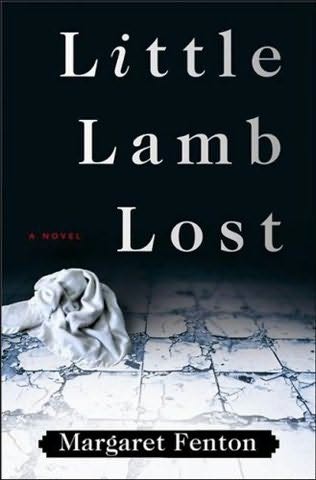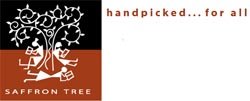 The Box from Braunau: In Search of My Father's War, by Jan Elvin
The Box from Braunau: In Search of My Father's War, by Jan ElvinAMACOM
Rel: May 28, 2009
ISBN: 978-0-8144-1049-3
“Soldiers aren’t the only casualties of war”, says author Jan Elvin in the afterword of this engrossing memoir. ” Their families suffer as well although their battles are fought later, on the home front.”
While never diagnosed, Elvin’s father may have suffered the effects of post traumatic stress disorder(PTSD) long after his return from the front as an American soldier during World War II, in turn emotionally scarring his wife and children as well. Struggling to hide his trauma while providing for his family in the years following the War, Bill Elvin steadily became a controlling and emotionally remote father, prone to anxiety, erratic behaviour and sudden bouts of violence when startled. He became a respected reporter and a pillar of the community, but failed to preserve his marriage or build strong bonds with his four children. This book is the story of his daughter’s attempt , nearly fifty years later, at understanding what he went through during the war, and how this might have affected his life thereafter.
“The Box from Braunau : In Search of My Father’s War” begins with the author’s realization that a simple gift her father received during the war from a prisoner he helped liberate from the Nazis might hold the key to finally understanding him .This book chronicles her investigation into his experiences during World War II, many of which he never revealed to his family. As Elvin delves deeper into her research and encourages her father to begin speaking about his experiences, she realizes that he had witnessed not only frontline combat but also the chilling horrors of a slave labour camp in Austria .Meeting other veterans and survivors of the war, she further realizes that her family’s struggle was far from unique;thousands of families like hers struggled with PTSD then, and continue to do so around the world.
The narrative, interspersed with extracts from Bill Elvin’s lucid war time journal , is elegant and restrained; Elvin knows when to step back and let her father do the talking. The gaps in his journal, the issues he felt unable to write about, are filled in with meticulous research, giving the reader a seamless picture of the War from the American perspective. The book also debunks attempts to romanticize the war or civilian life during that period.
'The hills are alive with the sound of murder',says a speaker at a reunion of Holocaust survivors in Austria, not far from where that evergreen hit 'The Sound of Music' was filmed. 'The hills are alive with the sound of torture'. For every one with a sense of nostalgia about the so-called 'Good War', those lines serve as reminder of the true horrors the War stood for -the mass slaughter of innocents that the Nazis were allowed to get away with, as well as the needless loss of civilians and soldiers alike in a conflict that could have been prevented with sound economic reform.
Elvin painstakingly builds up a portrait of her father by delving right back into his childhood, examining the incidents that shaped him and guided him towards the choices he made. Bill Elvin emerges as a flawed but remarkable man, displaying great courage under adversity and dedicated to his family despite their subsequent estrangement. She is honest about her own feelings of anger and resentment towards her parents as she struggled to deal with their separation and the responsibilities this thrust on her. She also touchingly confesses that while the writing of this book may have helped her forgive him, it may have done nothing for her siblings, each of whom was affected in their own way by Bill's behaviour.
As much as this is a tribute to Bill Elvin, it is also about the author’s own search for closure on a lot of unresolved issues she had with her father. It is heartening to note that she does indeed achieve this and, towards the end of his life, grow closer to him. Above all, the book seeks to reach out to families of soldiers in past and ongoing combat zones around the world, to help them deal with the psychological battles that may continue long after they return home.
Thanks to Alice Northover of AMACOM Books for sending me a copy of the book to review.
Here's another book that looks at PTSD in a soldier from another Great War.
And here and here - past reviews of stories from the Holocaust.
Rel: May 28, 2009
ISBN: 978-0-8144-1049-3
“Soldiers aren’t the only casualties of war”, says author Jan Elvin in the afterword of this engrossing memoir. ” Their families suffer as well although their battles are fought later, on the home front.”
While never diagnosed, Elvin’s father may have suffered the effects of post traumatic stress disorder(PTSD) long after his return from the front as an American soldier during World War II, in turn emotionally scarring his wife and children as well. Struggling to hide his trauma while providing for his family in the years following the War, Bill Elvin steadily became a controlling and emotionally remote father, prone to anxiety, erratic behaviour and sudden bouts of violence when startled. He became a respected reporter and a pillar of the community, but failed to preserve his marriage or build strong bonds with his four children. This book is the story of his daughter’s attempt , nearly fifty years later, at understanding what he went through during the war, and how this might have affected his life thereafter.
“The Box from Braunau : In Search of My Father’s War” begins with the author’s realization that a simple gift her father received during the war from a prisoner he helped liberate from the Nazis might hold the key to finally understanding him .This book chronicles her investigation into his experiences during World War II, many of which he never revealed to his family. As Elvin delves deeper into her research and encourages her father to begin speaking about his experiences, she realizes that he had witnessed not only frontline combat but also the chilling horrors of a slave labour camp in Austria .Meeting other veterans and survivors of the war, she further realizes that her family’s struggle was far from unique;thousands of families like hers struggled with PTSD then, and continue to do so around the world.
The narrative, interspersed with extracts from Bill Elvin’s lucid war time journal , is elegant and restrained; Elvin knows when to step back and let her father do the talking. The gaps in his journal, the issues he felt unable to write about, are filled in with meticulous research, giving the reader a seamless picture of the War from the American perspective. The book also debunks attempts to romanticize the war or civilian life during that period.
'The hills are alive with the sound of murder',says a speaker at a reunion of Holocaust survivors in Austria, not far from where that evergreen hit 'The Sound of Music' was filmed. 'The hills are alive with the sound of torture'. For every one with a sense of nostalgia about the so-called 'Good War', those lines serve as reminder of the true horrors the War stood for -the mass slaughter of innocents that the Nazis were allowed to get away with, as well as the needless loss of civilians and soldiers alike in a conflict that could have been prevented with sound economic reform.
Elvin painstakingly builds up a portrait of her father by delving right back into his childhood, examining the incidents that shaped him and guided him towards the choices he made. Bill Elvin emerges as a flawed but remarkable man, displaying great courage under adversity and dedicated to his family despite their subsequent estrangement. She is honest about her own feelings of anger and resentment towards her parents as she struggled to deal with their separation and the responsibilities this thrust on her. She also touchingly confesses that while the writing of this book may have helped her forgive him, it may have done nothing for her siblings, each of whom was affected in their own way by Bill's behaviour.
As much as this is a tribute to Bill Elvin, it is also about the author’s own search for closure on a lot of unresolved issues she had with her father. It is heartening to note that she does indeed achieve this and, towards the end of his life, grow closer to him. Above all, the book seeks to reach out to families of soldiers in past and ongoing combat zones around the world, to help them deal with the psychological battles that may continue long after they return home.
Thanks to Alice Northover of AMACOM Books for sending me a copy of the book to review.
Here's another book that looks at PTSD in a soldier from another Great War.
And here and here - past reviews of stories from the Holocaust.







